Commuters push back on NJ Transit fare increase, citing 'deplorable' conditions at hearing
For some, NJ Transit’s proposed fare increase comes at a time of extreme hardship, but others said the increase is palatable with improvements or changes to the proposal, while still others said it was unjustified because of the poor service and conditions they routinely experience.
Those were among the sentiments expressed by the 15 people who provided input during two of NJ Transit’s so-far four public hearings seeking feedback about a plan to increase fares 15% on July 1 and 3% on July 1 every year after that, the first fare increase in nine years. While six more hearings will take place in locations around the state this week, participation has been low, with criticism because the agency did not allow a virtual option.
Though speakers were only allowed three minutes to share input, their unique experiences and complaints about riding NJ Transit’s buses, trains and light rail came back to the same theme: decades of under-investment and neglect of the system by state legislators and governors are having everyday impacts on New Jerseyans’ commutes.
To get to her nursing home patients, Caje Qesja said she often has to take three buses that are usually in “deplorable” condition and spewing pollution, which is why she can’t support a fare increase without better service and new, electric buses.
“Those buses crack as if they are about to break in pieces, when I get in there the floor is always filthy, dirty, the air is thick, heavy with germs, the chairs, the cushions are completely dissolved as if they don’t exist anymore. … Then we’re thinking on top of it to increase the rates. For what?” Qesja said at the evening public hearing in Hackensack. “Today I came from Fort Lee here, I was on the bus standing up because I couldn’t sit down and I had this meeting, I had to come, I couldn’t just wait for another bus to take like 45 minutes to come.”
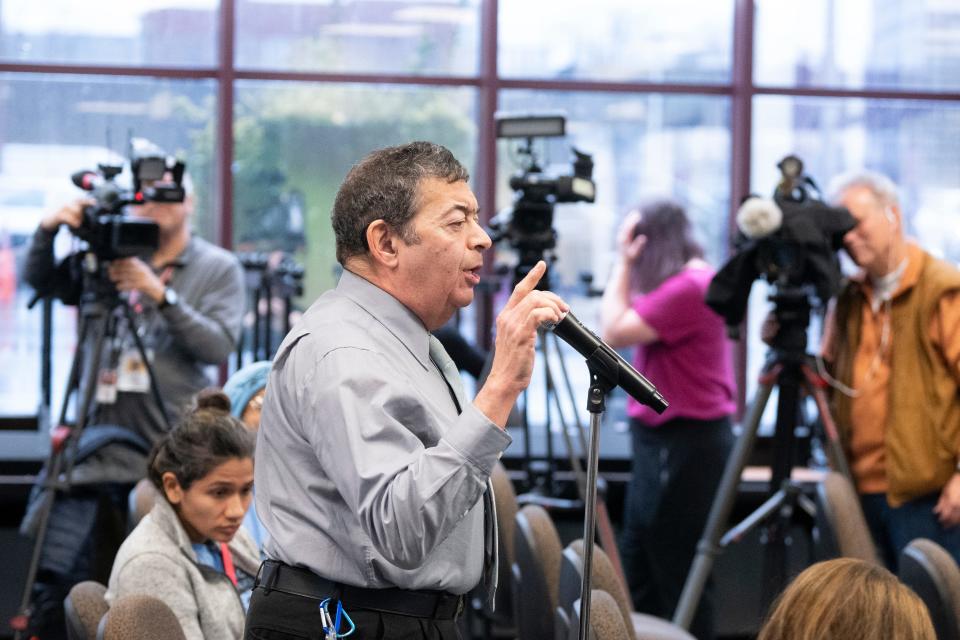
Expanding bus and rail service would come at a cost
Expanding service so buses come more frequently and adding electric buses to the fleet are all issues the agency has tried to address but can’t without more updated and expanded garage spaces. Modernizing and expanding just five of NJ Transit’s 16 bus garages requires more than $1 billion, with many more millions needed to purchase new buses or more expensive electric buses.
Matthew Vogel said he has been waiting almost two decades for the Hudson-Bergen Light Rail line to be extended to Englewood hospital, a project that has not received a commitment of funding from state legislators and forced the Federal Transit Administration to stop reviewing its federal grant application last year. Without the extension, Vogel is forced to take the more expensive Pascack Valley Line, which has taken a toll on his family’s budget.
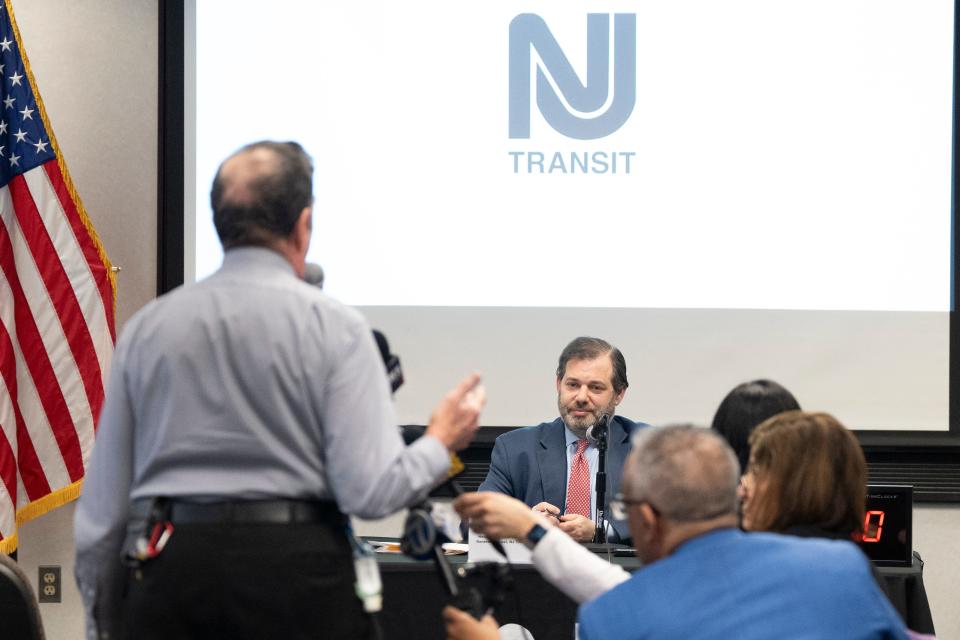
“My dad and I cannot buy some of the stuff we used to,” Vogel said. “I live like 2.5 miles from Englewood hospital, so I can’t understand why it’s taken almost 18 years for the light rail to not be extended to Englewood because it would be cheaper instead of taking that Pascack Valley Line.”
John Caulfield urged the agency to get more creative when trying to find additional revenue instead of resorting to fare hikes, such as renting out some of the Hoboken train station, and investing in more service, such as offering weekend service on the Montclair-Boonton line, which it doesn’t currently have.
“It’s about revenue, not on the backs of the ridership, we need to explore other avenues of revenue,” said Caulfield. “I wish you’d look inside your agencies to see any type of bloating you can cut out.”
NJ Transit will begin seeing additional revenue through new lease agreements approved in recent years by allowing development on some of its property, including at Hoboken Terminal where work is beginning on station improvements and renovating the second floor so it can generate revenue as a rental space.
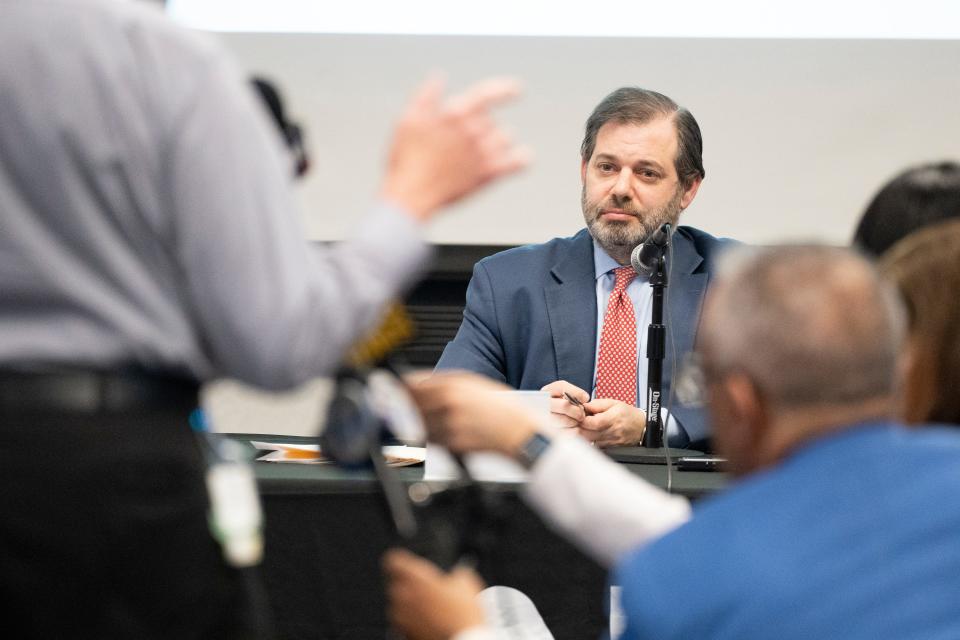
In addition, the agency said it found $44 million in internal cost reductions. But at the same time, NJ Transit’s board approved a controversial move to a new headquarters at a location more expensive than four other options considered and significantly more expensive than upgrading the current facility. Moving costs have already ballooned to $54 million, up from the $40 million budgeted last year.
Other cuts the agency highlighted are $52 million in “revenue enhancements,” including ending the pilot FlexPass program intended to attract riders who have hybrid work schedules by offering a 20% discount for 20 tickets that can be used any time in 30 days.
The elimination of the FlexPass, plus the 15% increase in fares, means a far steeper cost increase than headlines have suggested, said Perry Bloch, who rides the Pascack Valley Line and buses.
“I fully understand the need for increases and I think all New Jersey residents will be happier with a more modernized and reliable system as a result of the fare increases, but the removal of the FlexPass may seem minor to some who don’t use it, but it represents over a 40% increase in commuting costs, which is a much larger burden on our wallets,” Bloch said.
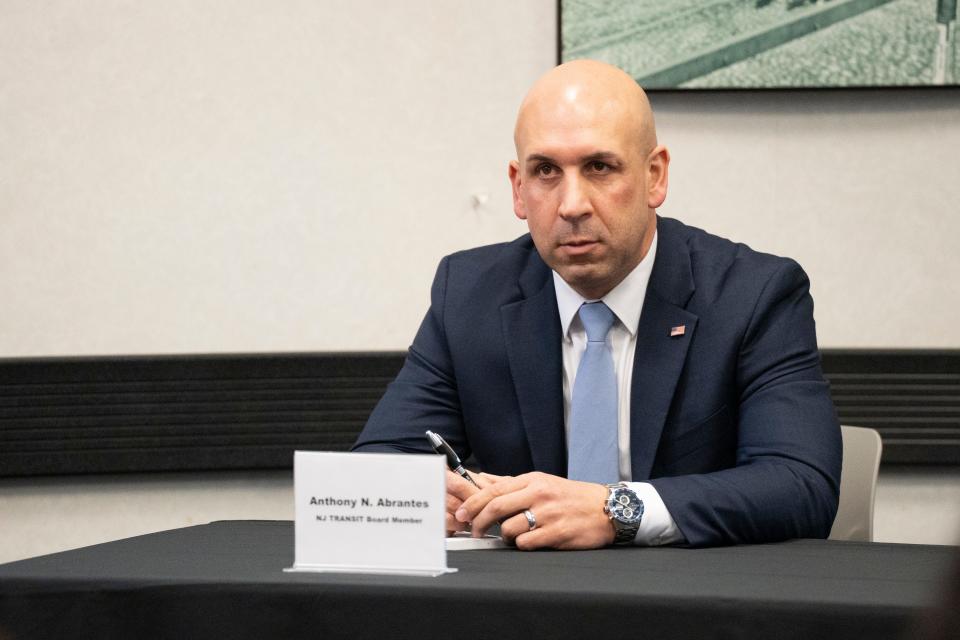
Corporate business tax urged
Assemblywoman Shama Haider, D-Teaneck, urged the governor and Legislature to instead use a tax on corporate businesses to stave off the proposal to increase fares entirely.
“Bergen County is one of the most expensive places to live within the state, increasing these fares places hardship on those who need and rely on affordable public transportation,” Haider said.
Gov. Phil Murphy announced a proposal last month that would create a corporate transit fee, a tax on businesses that earn over $10 million and could generate more than $800 million in revenue in its first full year after going into effect. Haider said if that’s not enough to cover the agency’s looming deficits – more than $100 million going into fiscal year 2025 and $917 million in fiscal year 2026 – then a recently expired surcharge that taxed corporations that earn more than $1 million should be brought back.
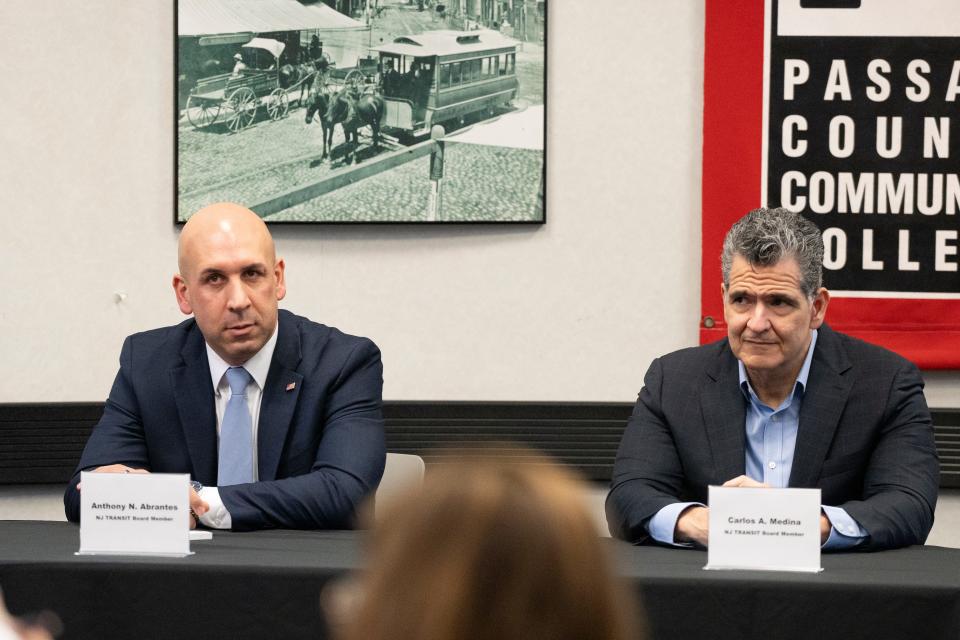
The future of any new, additional corporate tax will not be decided until July 1 when state budget negotiations end, two months after NJ Transit’s board is expected to vote on the fare proposal at their April 10 board meeting.
Loretta Weinberg, a Teaneck resident and former Senate majority leader who retired in 2022, said without more information about how the budget process will play out, “we really do not know enough about anything to give genuine input.”
“Why do we still find the 15% fare increase necessary — and more glaringly the 3% after that — when we don’t even know exactly what the transit fee will amount to?” Weinberg said, urging the board to wait until after the state budget is finalized to make any decision on fares.
“To adopt this in April seems to be ill-timed based upon insufficient information that you are asking the riders to underwrite for this agency.”
This article originally appeared on NorthJersey.com: NJ Transit fare increases: Commuters push back

